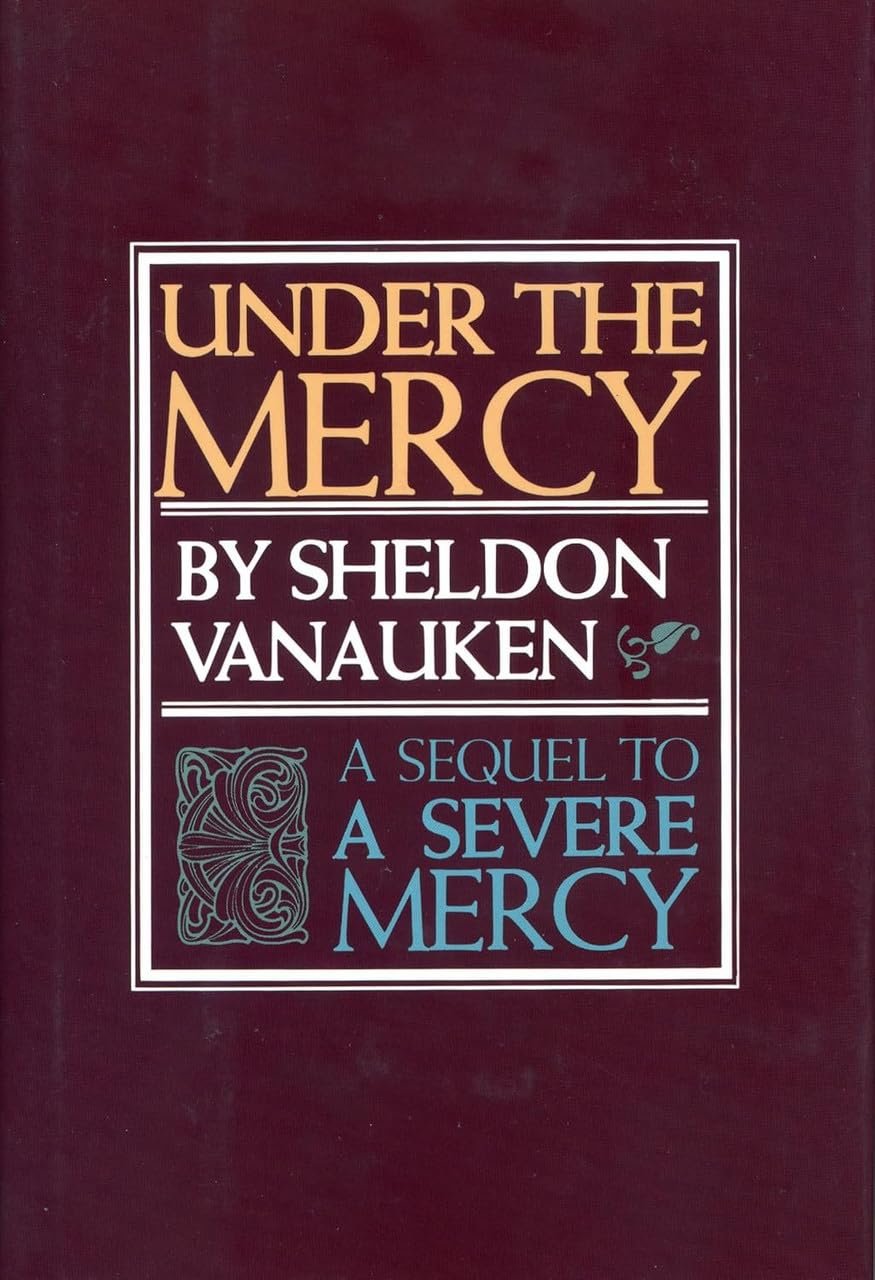
Betsy Kerekes reviews Sheldon Vanauken’s sequel to his bestseller, A Severe Mercy.
Under the Mercy
By Sheldon Vanauken
Published by Ignatius Press

In A Severe Mercy, Sheldon Vanauken detailed the love story with his wife, Davy, their conversion from paganism to Christianity, and Davy’s untimely death. Under the Mercy tells us what happened next in Vanauken’s somewhat tumultuous life.
Though he never remarried, as no one could fill the “Davy-shaped hollow,” Vanauken filled the remaining decades of his life with good friends, whom he called, “The people God gave me to love at this time and place.”
History fans will appreciate Vanauken’s first-hand accounts of segregation, the rise of feminism, and the Vietnam War. His takes the reader with him on a trip to England, where he writes: “I saw a perplexing reference or two to something called the ‘Beatles.’ A typo? A new kind of insect?”
He also shares his last visit with his good friend, C.S. Lewis, their next teatime canceled via the news of Lewis’s death — largely overshadowed by the assassination of John F. Kennedy on the same day, November 22, 1963.
The best portions deal with his personal conversion. Once he got over his hippie-sympathizing lifestyle in the ‘60s and cut his hair, he described his “Year of Nudges” from God to bring him back to his distant, nearly non-existent faith.
He recognized his sinfulness in putting something above God, namely the cause of protesting the Vietnam War:
Feeling virtuous, as the social activist often does ... the feelings of virtue often leading to pride, even arrogance. In some respects, it’s a noble sin, but it may lead to Hell all the same, as putting something else ahead of God does.
And yet, he experienced God’s love and mercy all the more profoundly as a result of being called back to a life of faith.
We are, I think, so made that our greatest happiness is in doing God’s will. If I am right, those who rebel against God do not find either joy or happiness, except momentarily … And yet, I should not have found that happiness, that exaltation, had God cast me off as the disobedient sinner I was. Instead, in His mercy, He patiently drew me back to Him.
“The Question of Rome”
Beyond being drawn back to his Christian faith, Vanauken could not escape the logic of Catholicism, noting, among other things:
If all of Evangelical and Eastern Orthodox faith were united once again to the tremendous power of the Catholic Magisterium, what a force for Christ! Not a Church, as Chesterton said, that will move with the world but ‘a Church that will move the world.’ Unity that would make the Faith more credible to non-Christians. Unity, I was beginning to see, that could only be brought about through the primacy of the Successor of Peter and the teaching authority (Magisterium) of Holy Church.
Ultimately, Vanauken saw evidence of the Holy Spirit guiding the Catholic Church. One point was that the popes of the Renaissance who “triggered the Protestant revolt,” were bad men who, nonetheless, did not, could not, change Church teaching.
He noted many times the Holy Spirit, “as opposed to the Spirit of the Age,” kept the Church from error. If the Holy Spirit did this for other Christian denominations, why would there be so many thousands of them teaching different things? “They can’t all be correct,” he noted.
Another reason he saw evidence of the work of the Holy Spirit in the Church was the uncanny sequence of events that led to the papacy of John Paul II. Even as a non-Catholic at the time, he knew this was a man God appointed precisely because and when the world needed him.
Ultimately, Vanauken felt he could not help but become Catholic. His thought process was fascinating.
An Author Witnesses the Damage of the Sexual Revolution
Another event Vanauken witnessed firsthand was the start of the Sexual Revolution via widespread acceptance of birth control. The results of this he found were:
The old scheme of making sex with "nice girls" unavailable except on the bed of matrimony has altogether collapsed. The sexual revolution, quite simply, is a male dream come true. Women and marriage are the losers.
Vanauken called the world of the 1980s, during which he wrote this book, “sex-saturated” and “deluged with every sensual urging that cynical intelligence can dream up.”
Other Essays
Diehard Vanauken fans will appreciate this book. It is peppered with his thoughts, feelings, and adventures over several decades, including bits of writing not widely distributed.
He includes an excellent, logic-driven essay on why God shouldn’t stop bad things from happening, as well as reasoning out why women should not be ordained. He also, with keen insight, delves into the mindset of people who forsake their marriage or religious vows because of feeling “rightness” and “inloveness” with another person.
Everyone interested in exploring more of Sheldon Vaunauken’s deep thoughts and intellectual musings should pick up a copy of Under the Mercy.

Ask for Under the Mercy at your local Catholic bookseller, or order online from Amazon.com or the publisher, Ignatius Press.
Is this a book you'd like to read? Share your thoughts with the Catholic Mom community! You'll find the comment box below the author's bio and list of recommended articles.
Copyright 2025 Betsy Kerekes
Images: Canva
About the Author

Betsy Kerekes
Betsy Kerekes is the author of Be a Happier Parent or Laugh Trying (Our Sunday Visitor 2019) and coauthor with Dr. Jennifer Roback Morse of 101 Tips for Marrying the Right Person (Ave Maria Press 2016) and 101 Tips for a Happier Marriage (Ave Maria Press 2013). She is Senior Editor for The Ruth Institute.


.png?width=1806&height=731&name=CatholicMom_hcfm_logo1_pos_871c_2728c%20(002).png)
Comments